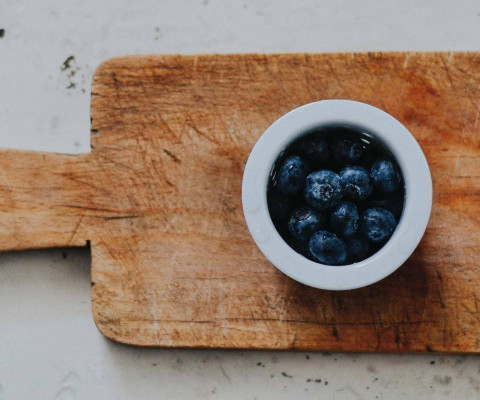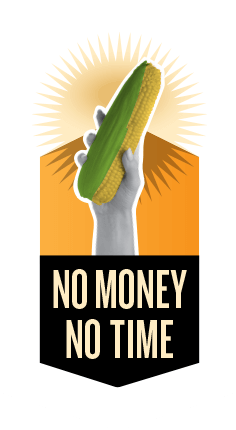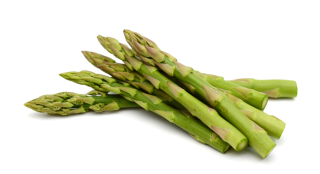
Asparagus
Asparagus is an easy to cook, nutritious and tasty addition to any plate. Its low in kilojoules and a great source of fibre, folate and vitamins A, C and K. Also, eating asparagus has a number of potential health benefits, including:
- Be Healthier:
High-fibre fruit and vegetables like asparagus can help reduce the risk of heart disease, type 2 diabetes and high blood pressure. Asparagus is rich in folate which is vital for a healthy pregnancy and reduces risk of neural tube defects during pregnancy.
- Healthy Gut:
Asparagus is a good source of fibre, in 10 spears there is around 6g of fibre (approx 20% of recommended daily fibre intake). Asparagus is particularly high in insoluble fibre, which adds bulk to stool and promotes a healthy gut.
To get more asparagus onto your plate, simply add it to salads, frittatas, omelettes and/or stir-fries.
FYI: Have you noticed that your pee smells a bit funny after eating Asparagus? Check out our article explaining why this happens.

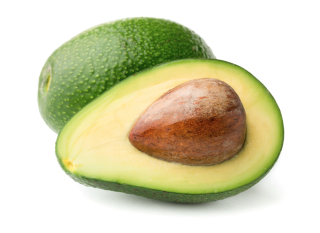
Avocado
If you’re an aspiring young homeowner, don’t worry, you can still enjoy some avo on toast! Avo’s are full of awesomeness, as you can see:
- Be Healthier:
Avocados are high in monounsaturated fats (The healthy type of fat), and essential phytonutrients (i.e. Vitamin K, Vitamin C & Potassium). Eating avocado has been associated with reduced metabolic syndrome risk and can improve heart disease risk factors like total, “bad” LDL and “good” HDL cholesterol, as well as blood triglycerides.
- Healthy Gut:
Avocados are a high fibre food, (1 x large avo is around 20% of the recommended daily fibre intake) which is beneficial for digestive health and promotes a healthy gut.
So next time you worry that your Avo on toast will set you back on buying a house, then worry no more because here at NMNT we have some awesome, cheap and healthy avo recipes.

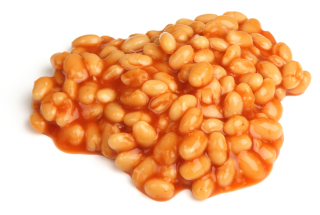
Baked Beans
Served as a toast-topping staple or piled high on a baked potato – baked beans are a delicious, quick and easy food that can be enjoyed with any meal of the day. Despite being called “baked” beans they are most commonly stewed in tomato sauce and they are usually made from navy beans (also known as haricot beans). There are many reasons why baked beans are healthy including:
- Be Healthier:
As an excellent source of fibre, beans can help reduce the risk of heart disease, type 2 diabetes and high blood pressure.
- More Energy:
A can of baked beans has a GI of 40; this is considered a low Glycaemic Index (Low GI) carbohydrate. This means when they are digested, the carbohydrates in them are absorbed slowly resulting in gradual release of glucose into the bloodstream. This helps to prolong energy throughout the day.
- Healthy Gut:
Baked beans are an excellent source of fibre, (one 130g can is around 25% of your daily recommended fibre intake) which promote a regular bowel habit and is beneficial for digestive health.
A drawback to baked beans are that they can contain quite a lot of salt so aim for the low-salt varieties.

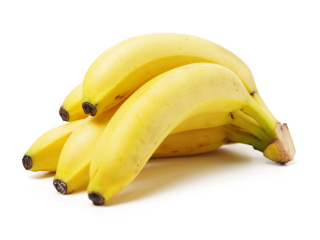
Banana
Bananas are one of the most popular fruits in the world and with all this goodness we can certainly see why:
- Be Healthier:
Bananas are a good source of potassium which can aid in reducing blood pressure and lower risk of heart disease and all-cause mortality.
- Healthy Gut:
Bananas are rich in fibre and resistant starch, which may feed the beneficial gut bacteria. They are also fairly rich in Pectin which may help protect against colon cancer.
Next time you need curb your hunger, grab a banana!

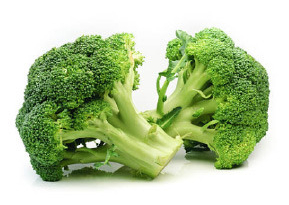
Broccoli
Broccoli may have been the bane of many childhoods, but these ‘little trees’ are a nutrition powerhouse full of beneficial health effects:
- Be Healthier:
Broccoli is a cruciferous vegetable and research has shown that consumption of cruciferous vegetables can reduce risk of many cancers including lung, colorectal, breast and prostate.
- Healthy Gut:
Broccoli are also rich in the plant compound Sulforaphane which may improve your bacterial gut microbiome.
Broccoli is one of the most popular veggies in the world. It is high in vitamin C, vitamin K and folate and is a good source of fibre. Add this mighty veg to your shopping basket today!

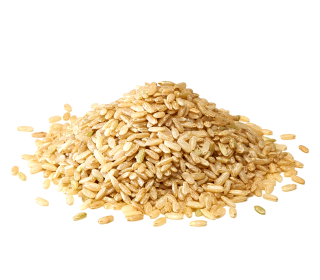
Brown Rice
Rice is enjoyed by people around the world! Did you know that there are over 40,000 varieties and it’s grown on every continent except Antarctica!
Brown rice is considered the most nutritional of the many forms. This is because it retains the bran as it is not milled like white rice that loses a lot of nutrients in the milling process.
Some of the amazing benefits of brown rice include:
- Be Healthier:
Brown rice is a whole grain which helps lower blood sugar levels and decrease risk of type 2 diabetes. One study found that simply replacing white rice with brown can also help to reduce blood glucose levels.
- Healthy Gut:
Brown rice is a good source of fibre which is essential for a healthy bowel function.
- Feel Fuller for Longer:
Compared to white rice, brown rice has a lower GI which helps to prolong digestion due to their slow break down and may help with satiety (feeling full).
Have a RICE day!

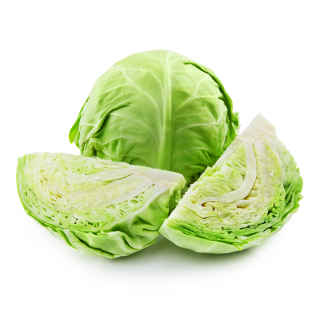
Cabbage
Did you know the heaviest cabbage ever grown was a whopping 63kg!!! As a sulphur rich food (which contributes to smelly farts), you wouldn’t want to be in close proximity to the person who ate that one!
While it may look like lettuce, cabbage is part of the brassica family of vegetables which includes broccoli, cauliflower and kale. Cabbage has some impressive health benefits including:
- Be Healthier:
Cruciferous vegetables like cabbage contains beneficial phytonutrients such as vitamin C, vitamin K, and manganese which help to reduce chronic inflammation
and reduce risk of heart disease. - Healthy Gut:
Cabbage is rich in the plant compound sulforaphane which may improve your bacterial gut flora.
- Support Immune Function:
Cabbage is a good source of vitamin C which is important for growth and development and maintenance of your immune system to help with wound healing and fighting infection.
Cabbage is often overlooked but can be found in a variety of dishes, including sauerkraut, kimchi and coleslaw. Just don’t eat too much cabbage when on a first date because the smelly farts could send them running for the hills.

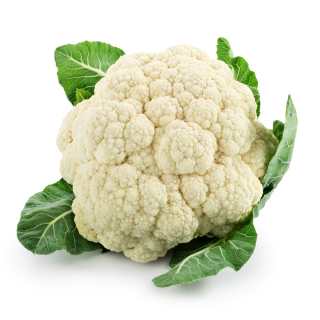
Cauliflower
Cauliflower is an incredibly versatile and nutritious veg that can be used to make rice, pizza crust, hummus, mac and cheese and even mash! Not only are caulis delicious they are packed with goodness too:
- Be Healthier:
Caulis are rich in Vitamin C which is well known for its anti-inflammatory properties and can help to reduce heart disease and cancer.
- Healthy Gut:
As a good source of fibre, cauliflower promotes a regular bowel habit and feeds the healthy bacteria in your gut to promote digestive health.
- Feel Fuller for Longer:
As a good source of fibre, cauliflower can help to slow digestion and promote feelings of fullness, which may help to reduce food consumed throughout the day.
So next time you are cooking, surprise your loved ones with a bunch of cauliFLOWERS!

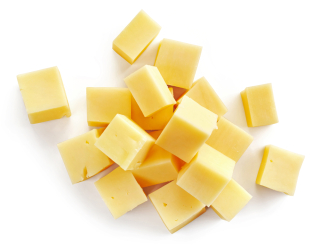
Cheese
You may not BRIE-lieve it, but eating moderate amounts of cheese regularly is consistent with good health! The Australian Guide To Healthy Eating recommends two to three serves of dairy foods per day with a serve equivalent to about 40 grams (about the size of a matchbox) of full fat or reduced fat cheese (*reduced fat is better to reduce your total kilojoule intake). Here are some reasons why cheese is awesome!
- Be Healthier:
A review of 4 studies found cheese intake to be associated with lower risk of heart disease.
- Better Sports Performance:
Cheese is high in protein which can provide amino acids for the maintenance and repair of muscle protein after strenuous exercise to help with a quicker recovery.
- Healthy Gut:
Cheese is a fermented food, containing bacteria or yeast, which contribute to healthy microbiomes and ultimately a healthy gut.
So we can all enjoy our Vegemite and cheddar sandwiches without feeling guilty!

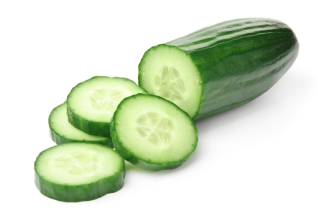
Cucumber
Cucumbers are often found in health spas as a beauty remedy to treat dark circles and puffy skin. BUT there’s more to cucumber that meets the eye. Check out these amazing benefits to regularly consuming cucumber:
- Be Healthier:
Cucumbers are a good source of potassium which can aid in reducing blood pressure and lower risk of heart disease and all-cause mortality.
- Healthy Gut:
Cucumbers are a good source of fibre, which promote a regular bowel habit and is beneficial for digestive health.
Though commonly referred to as a vegetable, cucumber is actually a fruit! Make sure to eat the cucumber with the peel/skin for maximum benefits.


Dragon fruit
Dragon fruit which is also known as the pitaya fruit contains several health benefits. Besides being low in kilojoules, it is also a rich source of antioxidants, Vitamin C, fibre and one of the few fresh fruits that contains iron!
- Be Healthier:
Dragon fruit is high in antioxidants (especially betacyanins and betaxanthins) which helps to reduce inflammation and reduce the risk of chronic diseases such as: heart disease, cancer, diabetes and inflammatory bowel diseases. Being a good source of iron, dragon fruit is important for populations with nutritional iron deficiency and may help to prevent poor pregnancy outcomes
- More Energy:
Dragon fruit is a good source of iron which is especially important for populations with nutritional iron deficiency and may help to improve work performance and reduce fatigue.
- Healthy Gut:
With 3g of fibre in one average sized dragon fruit (approx 12% of recommended daily fibre intake), dragon fruit is an excellent choice to be incorporated in your diet to meet your recommended daily requirement. It is also a good source of prebiotics that helps in promoting the growth of healthy bacteria in your gut.
- Support Immune Function:
Dragon fruit is high in vitamin C to help with wound healing and fighting infection. Vitamin C also helps the body to enhance the absorption of iron.
Enjoy it by simply incorporating Dragon fruit into your favourite smoothies and salads now!
FYI: Do you know that dragon fruit belongs to the cacti family?

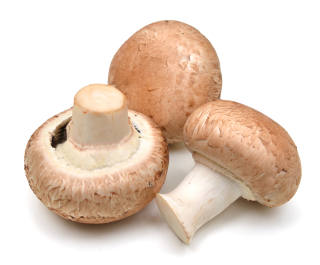
Mushrooms
Mushrooms are more than a Pizza Topping. Did you know they were once used for medicinal purposes in Asia? Whether you eat them for taste, nutrition or convenience it doesn’t matter because mushrooms help you to:
- Be Healthier:
Mushrooms are high in phytonutrients (especially Vitamin A, Vitamin D, Glutathione, ergothioneine and Selenium) which help in reducing inflammation and preventing heart disease and certain cancers.
- Healthy Gut:
As a good source of fibre, mushrooms help to keep you regular.
- Healthier Skin:
Mushrooms are a good source of niacin, which is associated with lower skin cancer risk.
So make some room for mushrooms on your plate!
FYI: Mushrooms are great for vegans and vegetarians because of the rich Vitamin B12 content. Vitamin B12 helps with red blood cell formation and the breaking down of some fatty acids and amino acids to produce energy. Mushrooms are one of the few plant-based sources which contain this essential vitamin.

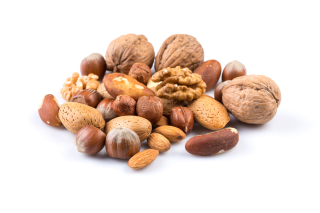
Nuts
Go NUTS for nuts! Did you know Walnuts are the oldest known tree food — they date all the way back to 10,000 BC. So not only have Nuts passed the test of time, they also have heaps of benefits including:
- Be Healthier:
Nuts are a great source of healthy fats (monounsaturated and polyunsaturated fats) which are essential for regulating blood cholesterol and improving heart health. In a review of 25 intervention trials, eating approximately 67g of nuts a day (about half a cup) led to a 5.1% reduction in total cholesterol and 7.4% for LDL (bad cholesterol). Eating nuts regularly has also shown to reduce risk of heart disease, reduce overall mortality and reduce risk of developing type 2 diabetes.
- Better Sports Performance:
Nuts are high in protein which can provide amino acids for the maintenance and repair of muscle protein after strenuous exercise to help with a quicker recovery.
- Healthy Gut:
As a good source of fibre nuts are essential for a healthy bowel function.
- Feel Fuller for Longer:
Although nuts are high in kilojoules, research in over 120,000 healthy men and women, found that eating nuts meant they were less likely to gain weight over the four years studied. The combination of protein, fibre and healthy fats help satisfy the appetite and help in weight management.
Almonds, Brazil nuts, cashews, chestnuts, hazelnuts, macadamias, pecans, pine nuts, pistachios and walnuts are all nuts that are packed full of beneficial nutrients for good health. So next time you’re peckish, maybe grab a bag of nuts.

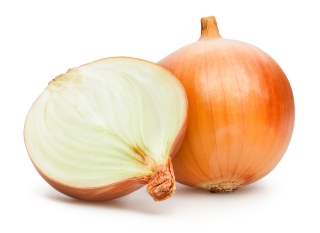
Onions
Don’t cry, onions are awesome! Commonly used for flavouring or as a side dish, this mighty veg sure packs a health punch:
- Be Healthier:
Being rich in Folate, onions are vital for a healthy pregnancy and reduces risk of Neural Tube Defects during pregnancy.
Onions are high in phytonutrients (especially Vitamin C and potassium) which help in protecting against cancer and Heart disease.
- Healthy Gut:
Onions are a decent source of fibre. The main fibre in them, fructan are prebiotic fibres which are considered the ‘beneficial gut bacteria’ which can improve colon health and reduce risk of colon cancer.
To get more onions in your diet, simply add to a curry, frittata, pasta, or salad.

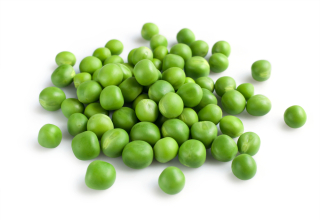
Peas
Don’t worry PEA Happy, because green peas are a healthy addition to any meal. In the Middle Ages, green peas were considered a luxury item and rich people served them to impress their hosts! This luxurious veg has some impressive health benefits too:
- Be Healthier:
Peas are high in fibre and can help reduce the risk of Heart disease, Type 2 diabetes and high blood pressure.
- Healthy Gut:
As a good source of fibre, green peas promotes a regular bowel habit and keep gut bacteria healthy.
Whether it’s frozen, fresh or canned green peas, why not try some today.

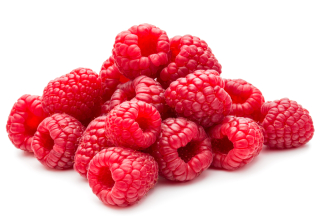
Raspberries
Raspberries are a delicious, red berry. You might find them in summer drink menus or spicing up a fruit salad. But did you know they have health promoting qualities too:
- Be Healthier:
Raspberries are high in phytonutrients (especially Vitamin C and Manganese) which help in protecting against cancer and Heart disease.
- Healthy Gut:
As a good source of fibre, raspberries promote a regular bowel habit.
- Healthier Skin:
Research suggests the phytonutrients in berries help to neutralise free radicals, which is one of the leading causes of skin aging.
There are many ways to enjoy this juicy fruit. Frozen raspberries can be cheaper and available all year round! Try adding to cereal or oats for a tangy breakfast. Add to a smoothie for a quick snack or make a berry salad with blueberries, strawberries and blackberries.
Did you know: Raspberries come in all sorts of colours, including red, purple, gold or black. The gold ones are the sweetest variety.

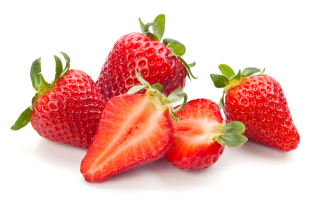
Strawberries
Strawberries are a ‘must-have’ food to put in your shopping trolley. They taste great, are highly nutritious and provide many health benefits, including:
- Be Healthier:
Strawberries are high in phytonutrients (especially Vitamin C and Manganese) which help in protecting against cancer and Heart disease.
- Sharper Thinking:
Strawberries are high in flavonoids which have been shown to improve memory, enhance brain function and reduce rates of cognitive decline.
- Healthy Gut:
Strawberries are a good source of fibre which are important to feed the friendly bacteria in the gut and improve digestive health.
Did you know: A staggering 28,000kg of strawberries are consumed by fans over the course of The Wimbledon Tennis Grand Slam.
So next time you’re watching sport, rather than grab a pack of chips, maybe grab a punnet of strawberries instead!

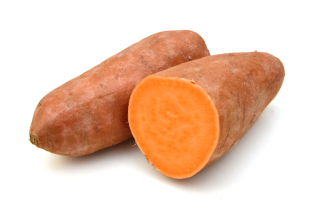
Sweet Potato
Sweet potatoes are full of nutrients. They can be baked, barbecued, fried, mashed, roasted or steamed to create a tasty piece of tucker! They are rich in beta carotene, vitamin C and fibre with many health benefits, including:
- Be Healthier:
Sweet potatoes are rich in carotenoids, which help to protect against heart disease and cancer.
- Healthy Gut:
One large sweet potato contains around 7g of fibre which is 23% of the recommended daily fibre intake. As a good source of fibre, sweet potato promotes a healthy microbiome.
Make sure to keep the skin on to retain the benefits of fibre!
- Healthier Skin:
Sweet potatoes are rich in beta carotene which can improve skin health and appearance.
- Support Immune Function:
Sweet potatoes are a good source of vitamin C to help with wound healing and fighting infection.
Enjoy sweet potatoes in roasts, bakes, warm salads or pastas to boost the goodness in your next meal!

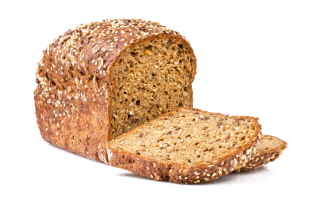
Whole Grain Bread
Whole grain bread is the best thing since, well erm, sliced bread! Some of the wonders of whole grain bread include:
- Be Healthier:
Whole grain diets have been linked to reduced risk of obesity, heart disease, some cancers and type two diabetes.
- More Energy:
Whole grain bread is a good source of B vitamins, iron and healthy carbohydrates. A serve of wholegrain bread has a GI of around 47, which is considered a low GI carbohydrate (compared to white bread which has a GI of around 70). This means these carbohydrates breaks down slowly to gradually release glucose into the bloodstream, this helps to prolong energy throughout the day.
- Healthy Gut:
Whole grain bread is high in dietary fibre which helps to feed “good” gut bacteria which has a number of health benefits. Research found that a diet high in whole grain was associated with lower risk of bowel cancer. Being high in fibre, whole grain bread is beneficial for bowel health and helps in preventing constipation.
- Feel Fuller for Longer:
Compared to white bread, whole grain has a lower GI which helps to regulate blood glucose levels, keeping us fuller for longer, and helping us eat fewer kilojoules throughout the day!
There are a number of different types of amazing whole grain breads, make sure to choose those with visible grains or seeds!

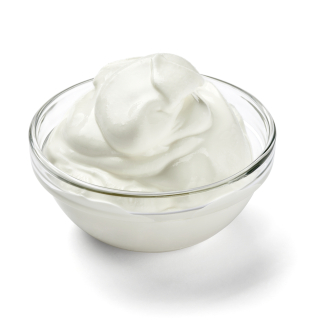
Yoghurt
Yoghurt is Turkish for “curdled” or “thickened milk”. It is one of the oldest fermented dairy foods and is a rich source of calcium and protein. It also contains other nutrients such as iodine, vitamins D, B2 and B12, and zinc. Here are some of the impressive health benefits of yoghurt:
- Be Healthier:
Yoghurt is important for overall health. Research has linked yoghurt consumption with gastrointestinal tract health, bone health and prevention of metabolic syndrome, diabetes and heart disease.
- Better Sports Performance:
Yoghurt is a good source of protein which can provide amino acids for the maintenance and repair of muscle protein after strenuous exercise to help with a quicker recovery.
- Healthy Gut:
Consuming yoghurt can help maintaining a healthy microbiota (the colony of bacteria in your gut). Also some types of probiotics in yoghurt have been shown to improve digestive health.
There are many different types of yoghurt – plain, Greek, low-fat etc but which is healthiest? Check out this 2-min read to find out.

